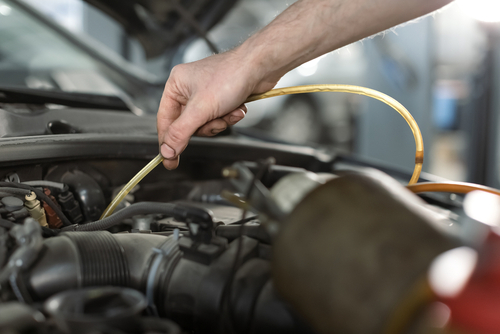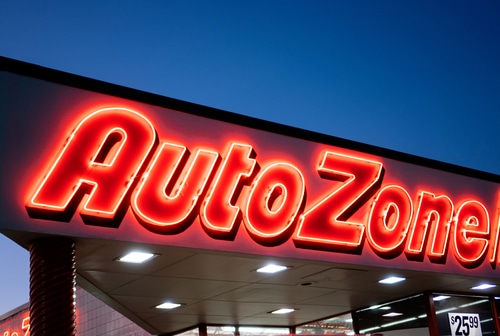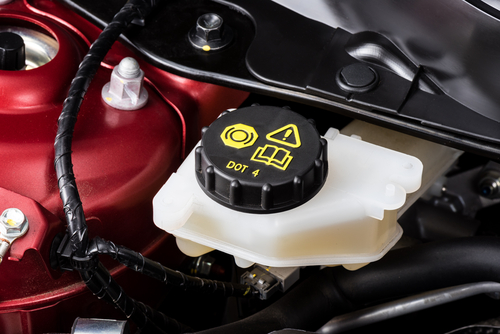Are you looking to ditch some old brake fluid? We’ve got you covered. The easiest option is to take it to the local parts store. They have to accept it if they sell it.
1. Local Hazardous Waste Collection Centers

When you need to dispose of brake fluid, your primary option is to visit a Local Hazardous Waste Collection Center. These facilities are equipped to handle and process hazardous materials in a safe and environmentally responsible manner.
Before You Go:
- Check the center’s schedule as many operate on specific days or hours.
- Prepare your brake fluid for transport, ensuring it’s in a sealed container to prevent spills.
Finding a Center:
- Use the Environmental Protection Agency (EPA) website to locate your nearest center.
- Contact your city or county waste management authority for a list of local sites.
| Potential Issue | Details |
|---|---|
| Identification | You may need to show ID or proof of residency. |
| Limits on Quantity | Centers often have restrictions on how much waste you can drop off at one time. |
| Type of Waste Accepted | Verify that the facility accepts brake fluid, as not all centers handle all types of hazardous materials. |
Upon arriving at the center, follow staff instructions. They may unload your hazardous items for you or direct you to the proper disposal area.
Remember: It’s important for your safety and for the protection of the environment to dispose of brake fluid correctly. Never pour it down the drain, into the ground, or mix it with other waste.
2. Automotive Parts Stores (Easiest Option)

When you need to dispose of brake fluid, many automotive parts stores offer recycling services. These facilities are equipped to handle hazardous materials and can ensure safe and environmentally responsible disposal.
Easiest Option
Local Automotive Retailers: Your first stop for disposing of brake fluid could be local automotive parts stores. Many of these retailers provide free recycling services for automotive fluids.
- Participation May Vary: Check with individual stores, as participation can vary by location.
- Accepted Fluids: Stores usually accept brake fluid along with other automotive fluids, except for gasoline.
- Instructions for Drop-off:
- Container: Store the brake fluid in a sealed and clearly labeled container.
- Service Hours: Drop-off during regular service hours. Avoid leaving materials outside the store when it’s closed.
- Limitations: There may be limits on the volume of fluid you can drop off at one time.
3/ Service Stations Or Auto Repair Shops
When you’re looking to dispose of brake fluid, service stations and auto repair shops may accept waste automotive fluids. These established local businesses often have the capabilities to handle hazardous materials safely.
Call First
- Verify Acceptance: Not all locations have the facilities for hazardous waste disposal, so it’s important that you call ahead to ensure they will take your brake fluid.
- Inquire About Fees: Some shops might charge a small fee for this service, so ask about any potential costs associated with the disposal.
Remember, proper disposal protects the environment and complies with local regulations.
4. Municipal Recycling Programs

When you need to dispose of brake fluid, your local municipal recycling programs may offer safe and environmentally responsible options. It is important to check with your city or county’s waste management department for specific guidelines, as disposal policies vary by location.
Typically, these programs have designated hazardous waste collection sites or events where you can take your used brake fluid. To effectively utilize these services, follow these steps:
- Locate your municipality’s services:
- Visit the official city or county website.
- Look for the waste management, recycling, or environmental services section.
- Prepare brake fluid for disposal:
- Keep the fluid in its original container if possible.
- Ensure the container is sealed and labeled clearly.
- If the original container isn’t available, use a clear, sealable container and label it as brake fluid.
- Adhere to collection schedules and guidelines:
- Drop-off times may be limited.
- Locations may only accept certain amounts at a time.
- Document the disposal process:
- Some programs provide a receipt or certification of proper disposal.
- Always ask questions if uncertain.
- Contact the provided phone number or email address.
5. Household Hazardous Waste Events
Your local community likely hosts periodic Household Hazardous Waste (HHW) events, a safe venue for disposing of items like brake fluid. At these events, you can typically hand over materials that should not be included in regular trash or recycling due to potential harm to the environment or public health.
Planning Your Visit:
- Check the Schedule: Local waste management websites often list HHW event dates. Mark them on your calendar to ensure you don’t miss the opportunity.
- Location Details: Event venues can vary from public parking lots to waste management facilities. Confirm the location beforehand.
Preparation Beforehand:
- Identify Acceptable Items: Not all events accept the same materials. Validate that brake fluid is listed as an accepted item for the event you plan to attend.
- Safety Measures: Ensure that the brake fluid is stored in a sealed, leak-proof container to prevent spills during transport.
At the Event:
- Follow the instructions given by the personnel at the site. They will guide you to the proper area for disposing of your hazardous waste.
- After drop-off, the waste is typically handled by professionals who dispose of or recycle the materials according to environmental regulations.
Please remember that HHW events are specifically designed for non-commercial waste. If you’re a business looking to dispose of hazardous materials, you’ll need to seek out commercial waste disposal options. Regular participation in your community’s HHW events helps keep the environment safe and clean for all.
